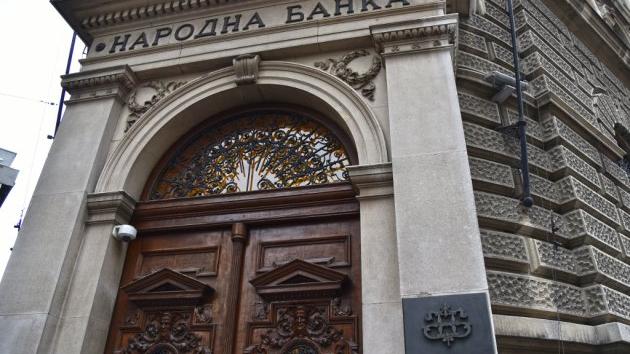NBS to tighten FX controls, temporary seizure of funds possible
Source: Biznis.rs
 Wednesday, 14.05.2025.
Wednesday, 14.05.2025.
 09:02
09:02
 Wednesday, 14.05.2025.
Wednesday, 14.05.2025.
 09:02
09:02
Illustration (Photo: Marta_Iaremko/shutterstock.com)

Control will be carried out in two ways - indirectly and directly. Indirect control involves collecting and analyzing documentation that entities submit themselves. These can be reports, statements, certificates and other types of documentation related to transactions abroad, accounts abroad, foreign exchange purchases and sales and other currency activities. If irregularities are discovered, a report is prepared, and the procedure takes on a new, more formal dimension. On the other hand, direct control means that authorized persons from the NBS or hired experts come directly to the premises of the company or persons they are controlling. They then gain access to the business books, contracts and computer systems. Special attention is also paid to companies that are property- or business-related to the subject of control.
Control in cooperation with the Tax Administration, customs, police…
One of the most important new features is the possibility of temporarily seizing various forms of property if there is suspicion that they were acquired illegally. This includes foreign currency, dinars, checks, payment cards, digital assets, but also documentation and permanent data carriers. The NBS has the authority to block cash accounts and digital wallets, to order electronic money institutions to make forced redemptions, and to transfer cryptocurrencies to an account under its control. All of this is done on the basis of the decision initiating the control procedure.
The NBS will not conduct the control independently. The law envisages cooperation with the Tax Administration, customs, police and other competent authorities. This cooperation includes data exchange, joint analysis and action in the event of suspicious transactions. Companies and individuals who find themselves under control must cooperate with the NBS. This includes making business books available, enabling technical access to databases and submitting documentation, either in written or electronic form. Authorized persons have the right to talk to employees, request explanations, verify identities and order the cessation of actions that are contrary to regulations. In case of non-compliance with these obligations, strict measures will follow.
Obstructing control
The subject of control is considered to have prevented the National Bank of Serbia from conducting a control if it does not fulfill certain obligations. This includes failing to act in accordance with the previous provisions of the decision, as well as preventing the seizure of various financial and documentary assets – from foreign currency and cash, through payment cards, digital assets, to documentation and business books.
The following specific cases are particularly highlighted as preventing control:
- If the subject of control is not at the registered address or does not respond to the NBS’ call
- If it intentionally or through gross negligence provides incorrect or incomplete data
- If it fails to provide the required data within the specified period
- If it fails to provide the authorized person with the conditions for work or if the authorized person is obstructed by employees or third parties
In the event of such violations, the authorized person shall prepare a report on preventing control. The National Bank may then issue a decision imposing a fine and ordering the immediate provision of control. In the event of failure to act within three working days, additional blocking of the financial assets of the subject of control is possible - except for payment of fines or taxes. Such a decision shall be considered an executive document and shall be the basis for enforced collection.
Control report
Upon completion of the control, the authorized person shall prepare a report containing the date, subject of control, established factual situation and signature of the person who prepared it. The subject of control has the right to submit objections to the report, along with evidence, within eight working days. If the objections show that the factual situation was different, the National Bank shall prepare an amendment to the report within 15 working days. If the objections relate to the situation that arose after the control, the National Bank shall not consider them in connection with the original report, but may take them into account when imposing measures. If the objections are unfounded or do not significantly change the findings, an official note shall be prepared. The National Bank may also correct technical errors in the report and submit a correction to the subject of control. The control procedure shall be suspended if no irregularities are found or if they are found to be less significant, as well as in the case where the objections of the subject of control are justified.
Fines
If an irregularity in foreign exchange operations is established in the report of the control, the National Bank shall issue a decision ordering the elimination of such irregularity within a certain period. The subject of control must submit a report and evidence that it acted in accordance with the order. If it fails to do so, the National Bank may conduct the control again. If the entity fails to comply with the order, the National Bank shall issue a second decision imposing a fine, with a new order to act. The fine must be paid within a certain period, and the entity shall be obliged to submit proof of payment, as well as a report on the action taken pursuant to the order. In the event of failure to act, a ban on the disposal of funds in all accounts may be ordered, except for the payment of fines and taxes.
When imposing fines, the National Bank shall take into account various factors, such as the degree of cooperation during the control, the history of conduct, previously imposed fines, the duration of the failure to act and other relevant circumstances.
All data and documents obtained by authorized persons during the control shall be treated as confidential or internal in accordance with the law. Persons who have obtained the data may not disclose them to third parties, and the obligation to maintain confidentiality shall continue even after termination of employment. Exceptionally, data may be submitted to domestic and foreign control authorities, but exclusively for the purpose for which they were obtained. The publication of data in aggregate form, which does not enable identification, shall not be considered a breach of confidentiality.
This decision supersedes the previous decision on foreign exchange control. Procedures initiated before March 14, 2025, shall be completed according to previous regulations. The decision shall enter into force on May 17.
Comments
Your comment
Naš izbor
Most Important News
Full information is available only to commercial users-subscribers and it is necessary to log in.
Follow the news, tenders, grants, legal regulations and reports on our portal.
Registracija na eKapiji vam omogućava pristup potpunim informacijama i dnevnom biltenu
Naš dnevni ekonomski bilten će stizati na vašu mejl adresu krajem svakog radnog dana. Bilteni su personalizovani prema interesovanjima svakog korisnika zasebno,
uz konsultacije sa našim ekspertima.


 Izdanje Srbija
Izdanje Srbija Serbische Ausgabe
Serbische Ausgabe Izdanje BiH
Izdanje BiH Izdanje Crna Gora
Izdanje Crna Gora


 News
News














